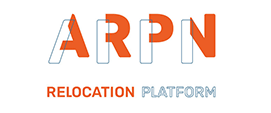
Do I need to conclude a health insurance in the Netherlands?
Index
- Do I need to take out health insurance in the Netherlands?
- How much does basic health insurance in the Netherlands cost?
- What is the deductible?
- What does basic health insurance cover?
- Can I keep my foreign health insurance?
- What if I am not eligible for Dutch health insurance?
- Can my family be insured under my policy?
- What happens if I don’t get insurance in time?
- Can I get financial help with health insurance costs?
- How do I choose a health insurance provider?
- Do I need additional insurance?
- How can Anywr Netherlands help?
Yes, if you live or work in the Netherlands longer than 4 months, you are legally required to take out Dutch health insurance within four months of registering with the municipality.
The average monthly premium for basic health insurance is around 150 euros (2026). This can vary depending on the insurer and the chosen deductible.
In 2026, the mandatory deductible (in Dutch: eigen risico) for Dutch basic health insurance is € 385 per year. This means:
– You pay the first € 385 of most healthcare costs yourself each year.
– You can choose a higher voluntary deductible (up to € 885 total) in exchange for a lower monthly premium.
– After the deductible, your insurer covers the rest of the costs for services included in the basic package.
The deductible does not apply to general practitioner (GP) visits, maternity care, and care for children under 18.
It covers general practitioner visits, hospital care, emergency services, maternity care, and many prescription medications. The insurance policy will tell you more.
Only in specific cases. For example, if you are in the Netherlands for study or a cultural exchange and not working, your foreign insurance may suffice.
If you have an A1 certificate, it means you remain socially insured in your home country while temporarily working in the Netherlands. As a result, you are not required to take out Dutch basic health insurance, because your social security (including healthcare) remains covered by your home country. This applies to posted workers, cross-border workers, or self-employed individuals under EU or treaty regulations.
However, the A1 certificate must be valid for the entire period you are in the Netherlands, and you may need to show it to Dutch authorities if asked.
If you are not eligible (e.g. you are a student or work for a foreign employer), you can take out private expat insurance instead. Companies like Allianz, Cigna Global, Aon, and OOM Verzekeringen offer private expat insurance.
Your partner living with you in the Netherlands usually also needs to take out their own Dutch health insurance. This is even the case when your partner does not work! Children until 18 years are put on the insurance of one of the parents and get the same coverage.
If you fail to get insured within four months after your local registration in the Netherlands, you may receive a warning first, followed by a fine from the Dutch government and be automatically enrolled in a health insurance plan. You’ll have to pay the premiums retroactively from the date you became subject to the insurance obligation.
There is a healthcare allowance (zorgtoeslag) depending on your income and residency status.
You can compare providers on websites like zorgwijzer.nl based on coverage, premiums, and customer reviews.
Supplementary insurance is optional and can cover dental care, physiotherapy, or alternative treatments not included in the basic package.
Anywr Netherlands can help you with all items related to your health insurance:
– The registration with the local municipality
– Keeping timelines
– Advice on the best health insurance for you
– Assitance with the enrolment






